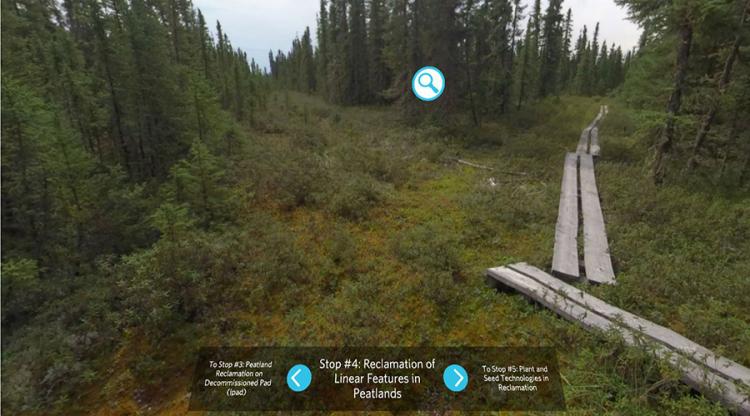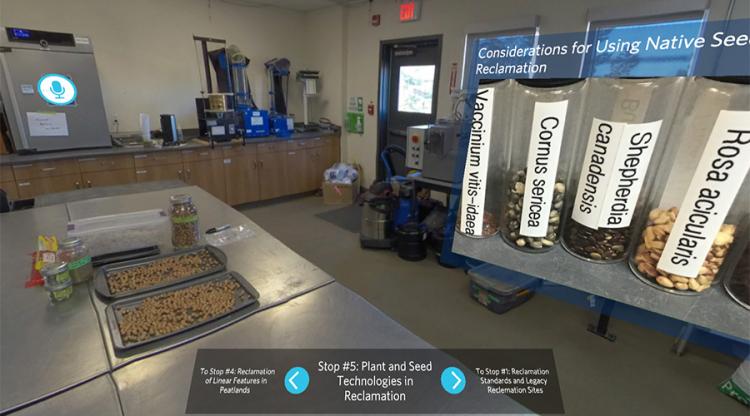NAIT will use 360-degree imaging technology to train workers in remote and rural communities, including First Nations and Métis settlements, to reclaim former industrial sites in northern boreal forests.
According to Rielle Massey-Leclerc, research extension and education coordinator with NAIT's Centre for Boreal Research, access to training is a significant barrier for many businesses and communities in northern Alberta and British Columbia. The lack of local skilled talent means that workers are typically brought in from urban centres hundreds of kilometres away, she says.
Thanks to a $771,638 grant from Future Skills Centre - a pan-Canadian initiative dedicated to helping Canadians gain skills in a changing labour market - NAIT will develop virtual training courses to teach Aboriginal learners about reforestation and land reclamation of sites disturbed by mining, oil and gas drilling and other industrial activities.
"We will be able to help train individuals to take on this important work and help to revitalize the local economies."
"Through our project, we will be able to help train individuals to take on this important work and help to revitalize the local economies," says Massey-Leclerc. "It allows us to bring people to these environments that are otherwise not easily accessible."
360-degree immersive experience
The project will tap experts from across NAIT, including the Centre for Boreal Research and Centre for Innovative Media, to create a series of virtual training courses that are accessible offline and will provide an immersive learning experience for students.
Using a six-lens, 360-degree camera, Massey-Leclerc and colleagues will capture images of the reforestation and reclamation process. Those images will be "stitched together," allowing learners to scroll or pan through the environment and interact with various tools such as videos, quizzes and information boxes in the virtual space, whether they are in a classroom or in a remote setting.

This example slide shows how students could interact in a virtual learning environment.
"This project is an innovative and radical approach to training and filling future skills gaps in the forestry sector that also offers culturally appropriate learning experiences to support northern and Indigenous communities," says Pedro Barata, executive director of the Future Skills Centre.
"This project is an innovative and radical approach to training and filling future skills gaps."
Program content is being developed in consultation with First Nations and Métis partners with two pilot courses planned for spring and summer 2022. One of those partners includes Aski Reclamation, a Saulteau First Nations company supported by the BC Oil and Gas Commission. The company specializes in reclaiming orphaned wells with native plants within Treaty 8 territory in northeastern B.C.
"This project is going to open doors to rural communities for real hands-on field skills in our own backyard," says Alycia Aird, general manager of Aski. "This program blends values of the community back with growing industrial needs for reclamation and restoration."

A slide showing plant and seed technologies used in reclamation.
Branching out beyond the forest
The reforestation and reclamation pilot is just the beginning for 360-degree immersive training at NAIT.
The Future Skills Centre grant will also allow NAIT to create a toolkit that can be adapted by instructors from any program area to develop 360-degree immersive training.
"This type of programming will go a long way to support training in these industries where field training can be difficult to access and is seasonally dependent," Massey-Leclerc says.
The toolkit is scheduled to be ready in early 2023.













